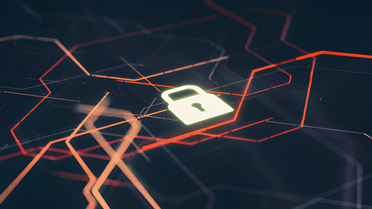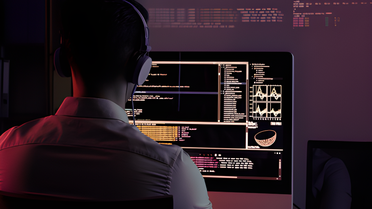Quotes are usually characterized by saying a lot with few words and expressing easily remembered ideas, which makes them highly useful in situations where you have to make decisions, be creative and solve problems. In addition, they tend to be highly persuasive, so they can also enhance our skills as effective communicators.
So, we would like to share with you some of cybersecurity quotes from experts in the field. We will begin with a general perspective and then focus on areas that we consider particularly important here at Azion: social engineering, hacker world, Web Application Firewall (WAF), and Zero Trust.
General Perspective
To warm up, here are some general ideas about cybersecurity.
One important thing to note is that, when people think about the kinds of damage caused by a cyberattack, they tend to think only about monetary damage. However, reputational damage may be even more severe, forever ruining the image of the company in the minds of partners and customers.
-
“It takes 20 years to build a reputation and a few minutes of cyber-incident to ruin it.” — Stephane Nappo, CISO, Société Générale International Banking
-
“There are only two different types of companies in the world: those that have been breached and know it and those that have been breached and don’t know it.” ― Ted Schlein, venture capitalist specializing in cybersecurity
-
“Companies should be thinking about the legal and managerial decisions that the CEO, the COO and the board will need to make in that kind of crisis situation.” ― Michael Vatis, founder of the FBI’s National Infrastructure Protection Center
Social Engineering
This is the psychological manipulation of a victim to obtain data from them that allows hacking. In other words: it’s that thief who, instead of forcing the lock, convinces you to give him the keys.
Did you know that in 2023 it was the most used type of attack against individuals (93%), or that there is already even a WormGPT, that is, a “ChatGPT” that generates fake emails for phishing purposes?
-
“The weakest link in the security chain is the human element.” — Kevin Mitnick, often referred to as the ‘World’s Most Famous Hacker’, he’s now a trusted cybersecurity consultant, founder of Mitnick Security Consulting.
-
“Phishing is a major problem because there really is no patch for human stupidity.”― Mike Danseglio, cybersecurity expert, Pluralsight
-
“We discovered in our research that insider threats are not viewed as seriously as external threats, like a cyberattack. But when companies had an insider threat, in general, they were much more costly than external incidents.” — Dr. Larry Ponemon, founder of the Ponemon Institute
Hacker World
Meeting the enemy face to face:
-
“It’s much easier to become a hacker now. It was a private community before and you had to find your way in, like tumbling down a rabbit hole. Today, there are all-in-one desktops fully equipped with tools pre-built into the operating system, all related to hacking. They are all very powerful tools and free to download.” — Michael Demon Calce, the ex-hacker known as MafiaBoy, launched one of the largest attacks in history against several global companies at the age of 15.
-
“If you give a hacker a new toy, the first thing he’ll do is take it apart to figure out how it works.” — Jamie Zawinski, programmer, one of the creators of Netscape Navigator, Netscape Mail and founder of Mozilla.org
-
“The hacker community may be small, but it possesses the skills that are driving the global economies of the future.” — Heather Brooke, writer and freedom of information activist
Web Application Firewall (WAF)
Imagine that your web application is a building with a large flow of people. The WAF is similar to a strong security guard that is very alert and keeps a watchful eye on everyone who enters and exits. You can provide him with precise instructions for him to decide who should circulate, and he can even begin to suspect someone he has never met, based on their behavior.
-
“WAFs genuinely raise the bar on application security… they ‘virtually’ patch the application faster than code fixes can be implemented.” ― Adrian Lane, Security Strategist, Securosis
-
“WAFs must deliver more sophisticated control at the application layer through a variety of contextual rule sets and behavioral analysis.” ― Sandra Kay Miller, Information Security Magazine
-
“We observed a shift in the security paradigm, wherein WAF solutions are no longer required for just threat prevention but also detection and remediation,” ― Charles Lim, ICT Senior Industry Analyst, Frost & Sullivan
Zero Trust
If there is a cybersecurity model that can adequately address the increasing sophistication of cybercrime, it is Zero Trust.
“Never trust, always verify” is a phrase that sums it up, according to which no entity ― users, devices, or applications ― should be trusted by default. Instead, their trustworthiness must be verified at each interaction.
-
“We take this whole problem called cybersecurity and we break it down into small bite-sized chunks. And then the coolest thing is it’s non-disruptive. The most I can screw up at any one time is a single protect surface.” ― John Kindervag, creator of Zero Trust
-
“Zero Trust is not a technology; it’s a security philosophy that rewires how we think about access.” ― Neil MacDonald, EVP & senior distinguished analyst at Gartner
-
“If the old model of security was an inflexible moat and castle, Zero Trust is a modern city where people and commerce flow freely while individual buildings, dwellings, assets, etc. have their own security systems allowing only authorized individuals to enter and access only the floors and resources they need to live, work, and play.” ― Stephanie Balaouras, VP, Group Director, Forrester
Azion’s Cybersecurity at the Edge
Azion’s Edge Computing Platform stands out for having been created based on the principles of Zero Trust and Security by Design. It provides a comprehensive security stack specifically designed to function at the edge. Moreover, it holds several of the most stringent compliance certifications in the market, such as PCI DSS v4.0, SOC 2 Type 2, and SOC 3.
Azion was recognized by several renowned international entities for its exceptional performance in the context of edge security. These recognitions include being designated as a Market Leader and Fast Mover in the GigaOm Radar report, as well as receiving the Santander X Global Challenge — Cyberprotect the Future award.
Among its standout solutions, Azion’s WAF deserves mention for its ability to neutralize even threats that have breached the defenses of several major cloud and edge computing vendors in the market. This is mainly due to its strength and flexibility, which are provided by its programmable security features.
Do you want to know more about how to take your applications’ security to a new level at the edge? Contact our experts now or register to try our platform for free.










